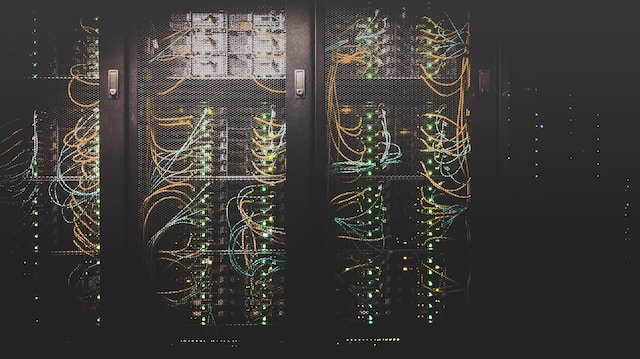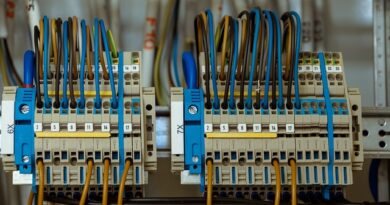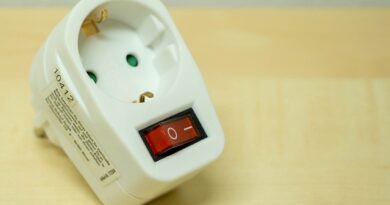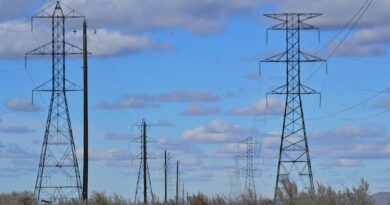Safety Assurance: How Electrical Safety Audits in Sonipat Can Protect You
Introduction
Electrical safety is a critical concern in Sonipat, as well as in any other city. With numerous electrical systems and equipment in use, it becomes essential to ensure that they meet the necessary safety standards. One of the most effective ways to achieve this is through electrical safety audits. In this article, we will explore the significance of electrical safety audits, their benefits, the process involved, and how they can protect you from potential hazards.
Importance of Electrical Safety Audits
H1: Ensuring Safety and Compliance
Electrical safety audits play a vital role in safeguarding individuals and property from electrical hazards. By conducting regular audits, businesses and homeowners in Sonipat can ensure that their electrical systems meet the required safety standards and comply with regulations. This proactive approach helps prevent accidents, injuries, and property damage caused by electrical malfunctions.
Understanding Electrical Safety Audits
H2: What is an Electrical Safety Audit?
An electrical safety audit is a comprehensive assessment of electrical systems, equipment, and installations to identify potential hazards and areas of non-compliance. It involves a thorough inspection and evaluation conducted by qualified electrical safety auditors. The audit aims to determine if the electrical systems are installed, operated, and maintained correctly to minimize risks.
H3: Scope of Electrical Safety Audits
Electrical safety audits cover various aspects, including the inspection of electrical panels, wiring systems, grounding, protection devices, and emergency systems. The audit assesses the condition of equipment, adherence to safety standards, presence of electrical hazards, and compliance with relevant codes and regulations.
Benefits of Electrical Safety Audits
H2: Advantages of Conducting Electrical Safety Audits
- Improved Safety: Electrical safety audits help identify and rectify potential hazards, reducing the risk of electrical accidents and injuries.
- Compliance: Audits ensure compliance with safety standards and regulations, avoiding penalties and legal complications.
- Enhanced Efficiency: By identifying inefficiencies and outdated equipment, audits help optimize electrical systems for better performance and energy efficiency.
- Reduced Downtime: Audits detect and address potential issues before they lead to equipment failure, minimizing downtime and costly repairs.
- Risk Mitigation: Identifying electrical hazards and taking corrective actions mitigates the risk of fire, electrical shocks, and other emergencies.
Common Electrical Hazards
H2: Types of Electrical Hazards
- Faulty Wiring: Outdated or improperly installed wiring can lead to electrical malfunctions and pose a fire risk.
- Overloaded Circuits: Overloading circuits beyond their capacity can cause overheating, tripped breakers, and electrical fires.
- Lack of Grounding: Improper grounding can result in electrical shocks, especially in the presence of faulty equipment or lightning strikes.
- Inadequate Maintenance: Poorly maintained electrical systems can lead to deteriorating components, loose connections, and increased hazards.
- Insufficient Insulation: Inadequate insulation increases the risk of electrical shorts, sparking, and potential electrocution.
The Process of Conducting Electrical Safety Audits
H2: Steps Involved in an Electrical Safety Audit
- Planning: Determine the scope of the audit, establish objectives, and identify the necessary resources.
- Inspection: Conduct a detailed inspection of electrical systems, equipment, and installations.
- Risk Assessment: Evaluate potential hazards, non-compliance issues, and the overall safety of the electrical systems.
- Documentation: Prepare a comprehensive report outlining findings, recommendations, and suggested corrective actions.
- Implementing Recommendations: Address the identified issues by implementing the recommended improvements and corrective measures.
- Follow-Up Audits: Schedule regular follow-up audits to ensure ongoing compliance and address any new concerns.
Qualifications of Electrical Safety Auditors
H2: Skills and Expertise of Electrical Safety Auditors
Electrical safety auditors should possess the following qualifications:
- In-depth Knowledge: Auditors must have a strong understanding of electrical systems, codes, regulations, and industry best practices.
- Certifications: Relevant certifications in electrical safety auditing demonstrate the auditor’s competence and adherence to professional standards.
- Experience: Extensive experience in conducting electrical safety audits allows auditors to effectively identify hazards and provide practical recommendations.
- Continuous Learning: Keeping up with the latest developments in electrical safety ensures auditors stay informed and maintain their expertise.
Implementing Recommendations from Audits
H2: Taking Action for Safety Improvement
Once an electrical safety audit is completed, it is crucial to implement the recommendations provided. Some key steps in this process include:
- Prioritization: Determine which recommendations require immediate attention based on their level of risk and potential impact.
- Budgeting: Allocate resources and budget for necessary repairs, upgrades, or replacements based on the audit recommendations.
- Engaging Professionals: Collaborate with qualified electricians or contractors to ensure the correct implementation of recommended measures.
- Monitoring: Regularly review and monitor the implemented changes to ensure ongoing compliance and effectiveness.
Ensuring Compliance with Electrical Safety Standards
H2: Staying Up to Date with Regulations
To maintain electrical safety in Sonipat, it is essential to stay updated with the relevant electrical safety standards and regulations. This includes:
- Local Codes: Familiarize yourself with local electrical codes, regulations, and standards enforced in Sonipat.
- Training and Education: Invest in training and education programs to keep your electrical professionals informed about the latest safety practices.
- Periodic Audits: Schedule regular electrical safety audits to assess compliance and identify areas that require improvement.
Importance of Regular Audits
H2: The Value of Ongoing Safety Audits
Regular electrical safety audits offer several advantages, including:
- Continual Compliance: Ongoing audits ensure long-term compliance with safety standards, keeping electrical systems up to date.
- Early Hazard Detection: By conducting frequent inspections, potential hazards can be identified and addressed before they escalate.
- Cost Savings: Proactive maintenance and repairs based on audit findings help avoid costly emergency situations and equipment failures.
- Peace of Mind: Knowing that your electrical systems are regularly audited and compliant provides peace of mind for homeowners and businesses alike.
Training and Education for Electrical Safety
H2: Empowering Individuals with Knowledge
To enhance electrical safety in Sonipat, it is crucial to promote training and education in the following areas:
- Electrical Safety Awareness: Educate individuals about the importance of electrical safety, potential hazards, and safe practices.
- Qualified Electricians: Encourage aspiring electricians to pursue proper training and certifications
Conclusion
Electrical safety audits are a fundamental aspect of ensuring safety and compliance in Sonipat. By proactively identifying and addressing potential hazards, these audits protect individuals, property, and businesses from electrical accidents and associated risks. Regular audits, implementation of recommendations, and a focus on training and education contribute to a safer electrical environment for everyone.
FAQs
Q1: How often should electrical safety audits be conducted?
A1: The frequency of electrical safety audits depends on several factors, such as the size of the property, the complexity of electrical systems, and the nature of operations. It is generally recommended to conduct audits annually or whenever significant changes occur.
Q2: Who can perform electrical safety audits?
A2: Electrical safety audits should be conducted by qualified professionals with expertise in electrical systems, codes, and regulations. Certified electrical safety auditors or licensed electricians are typically the most suitable individuals for this task.
Q3: What should I do if an electrical safety audit reveals non-compliance?
A3: If an electrical safety audit identifies non-compliance, it is essential to take prompt action. Engage qualified electricians to address the identified issues and implement the recommended corrective measures to ensure safety and compliance.
Q4: Can electrical safety audits help prevent electrical fires?




